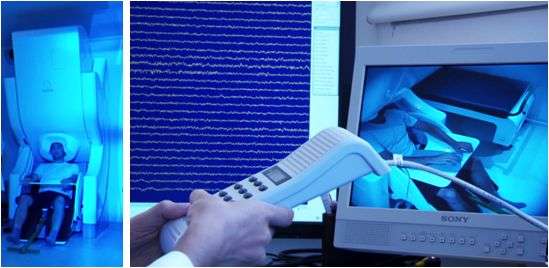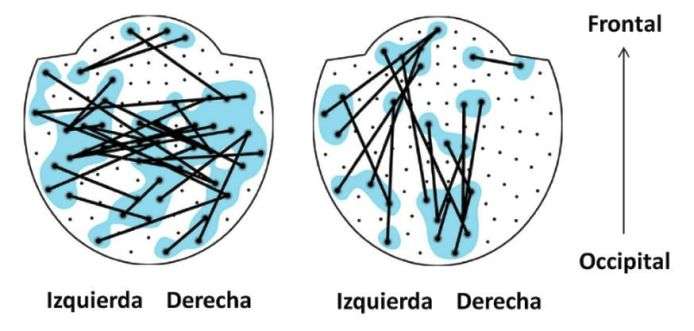A step forward searching for an early biomarker of Alzheimer's disease

Researchers from Centre for Biomedical Technology (CTB) at Universidad Politécnica de Madrid (UPM) have shown that the abnormal pattern of functional connectivity in patients with mild cognitive impairment can be considered an indicator of the alterations in the functioning of neurons due to the onset of Alzheimer's disease.
The number of people suffering from age-related neurodegenerative diseases has grown due to an increase of life expectancy. Among all these diseases, Alzheimer's is the most common degenerative disease and there is about 26 million people worldwide suffering from this disease.
Alzheimer's is characterized because, with the course of the disease, the neurons are dying and 20 years later of its onset, the first clinical symptoms appear that are basically loss of memory. Thus, an early detection of the onset of the disease in its early stages is essential. Today, the most studied previous phase is the mild cognitive impairment. People with a mild cognitive impairment suffer from memory lapses and they also may be at greater risk for developing Alzheimer's.
It is expected to find an early biomarker of Alzheimer's on neuroimaging techniques since they allow researchers to study changes caused in the brain of people suffering from this disease. The magnetoencephalography (MEG) is a technique that accurately measures the magnetic fields produced by the neuronal activity of the brain.

The first MEG in Spain was installed in Complutense University School of Medicine in Madrid in 2000 and since then, Alzheimer's disease became a research line at the Laboratory of Cognitive and Computational Neuroscience (LNCyC). The LNCyC group is the result of a joint collaboration between two universities of Madrid, UPM and UCM, and since 2010 they have been carrying out their research at Center for Biomedical Technology, located at the International Campus of Excellence Montegancedo.
The LNCyC group in collaboration with other researchers from Data Mining and Simulation Lab (MIDAS) at CTB has led an international project with the participation of labs of five countries in order to clarify if the brain activity patterns can be used as biomarkers of mild cognitive impairment. Thus, a total of 184 records of healthy elderly and patients with a mild cognitive impairment were carried out in the involved centers.
After analyzing the recorded population in Madrid, researchers found that patients with a mild cognitive impairment had decreased communication between the frontal and parietal areas compared to healthy elderly. After that, researchers used these results to diagnose, without having any prior information, the patients involved in the international centers. Results shown that, by using this technique, researchers classified the participants of the international groups as healthy elderly or patients with a mild cognitive impairment with the 82% of accuracy.
The responsible researcher, Fernando Maestú, said: "this result has shown that the anomalous pattern of functional connectivity in patients with mild cognitive impairment was consistent in all the international centers, and this can be taken as a sign of alterations in the functioning of neurons due to the onset of Alzheimer's disease".
More information: Fernando Maestú et al. A multicenter study of the early detection of synaptic dysfunction in Mild Cognitive Impairment using Magnetoencephalography-derived functional connectivity, NeuroImage: Clinical (2015). DOI: 10.1016/j.nicl.2015.07.011


















